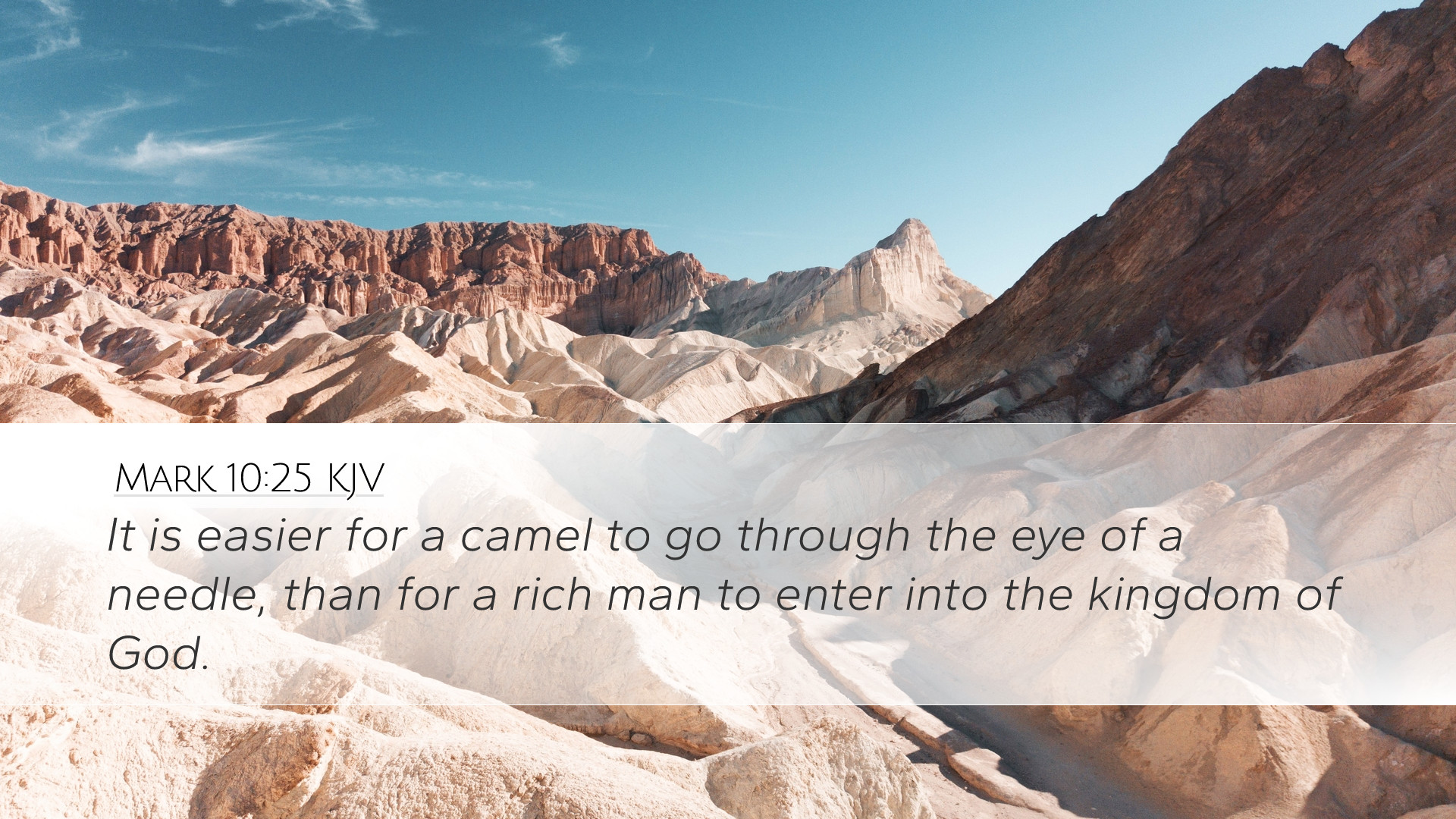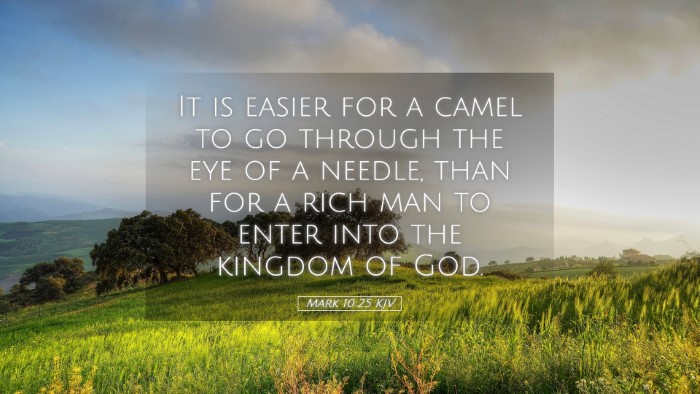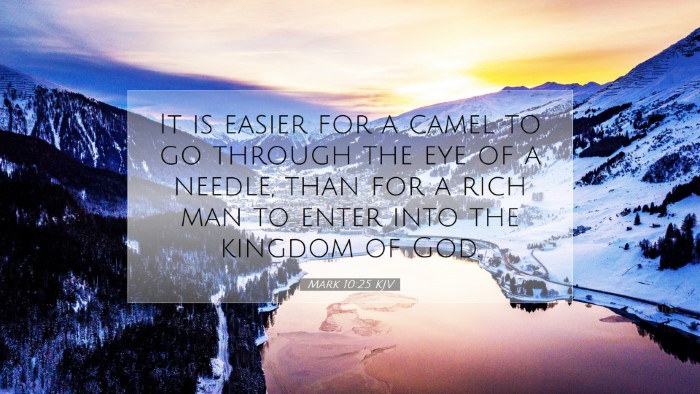Commentary on Mark 10:25
Bible Verse: "It is easier for a camel to go through the eye of a needle than for a rich man to enter the kingdom of God." (Mark 10:25)
Introduction
In Mark 10:25, Jesus presents a striking metaphor that conveys the difficulty for those who are wealthy to attain the kingdom of God. This verse is part of a larger narrative that addresses themes of wealth, discipleship, and the nature of God's kingdom. The insights from various biblical commentaries enhance our understanding of this profound statement.
Contextual Overview
This verse follows the account of the rich young ruler who approaches Jesus seeking eternal life but leaves sorrowful after being instructed to sell all he has and give to the poor (Mark 10:17-22). The rich man's unwillingness to part with his wealth underscores the broader theme of attachment to material goods and the challenges they pose to spiritual growth.
Commentary Insights
Matthew Henry
Henry emphasizes that the statement about the camel and the needle's eye illustrates the impossibility, from a human perspective, for the rich to enter heaven. He elaborates that wealth often leads to pride and self-sufficiency, causing individuals to rely on their possessions rather than on God. Furthermore, he notes that the image of the camel, a large animal, contrasted with the minute eye of a needle graphically depicts the extreme difficulty for a rich man to humble himself enough to seek God.
Albert Barnes
Barnes expands on the metaphor by exploring the cultural significance of camels in the Middle Eastern context. He suggests that the hyperbolic nature of this statement serves to shock the listeners into recognizing the spiritual peril of wealth. He interprets "entering the kingdom of God" as not merely physical entry but rather a spiritual transformation that requires humility, self-denial, and reliance on God's grace, which wealth can obscure.
Adam Clarke
Clarke provides a linguistic analysis, noting that the term translated “needle” might refer to a small gate in Jerusalem, which is often referred to in Jewish tradition. This interpretation suggests that while salvation is challenging for the wealthy, it is not entirely impossible. Clarke emphasizes that God’s grace can indeed help the wealthy to enter the kingdom if they choose to prioritize spiritual values over material possessions.
Theological Implications
-
The Nature of Wealth:
The commentaries collectively highlight that wealth is not inherently evil; rather, it poses a unique temptation. The rich young ruler exemplifies the struggle of prioritizing one's relationship with God over material possessions. Jesus' teaching challenges believers to examine what they value most.
-
Human Effort vs. Divine Grace:
Jesus' proclamation serves to remind us of human limitations in achieving salvation. While the human effort might be futile, divine grace remains the ultimate means through which anyone, including the rich, can be saved. This reiteration of grace resonates deeply within Christian doctrine.
-
Discipleship:
The call to discipleship is inherent in the passage. Followers of Christ must be willing to surrender all—including wealth and status. This radical call is essential for anyone pursuing a genuine relationship with Jesus and his teachings.
Practical Applications
For pastors and leaders, Mark 10:25 serves as a compelling reminder to address the spiritual dangers of materialism in their congregations. Encouraging a lifestyle of generosity and sacrificial giving can help counteract these perils.
For students and scholars, this verse invites discussion on the intersection of faith and economics. It beckons a deeper exploration of how resources can either hinder or advance one's spiritual journey.
Ultimately, this teaching remains a profound exhortation to all believers. Being aware of the seductive nature of wealth fosters humility and a greater dependence on God's provision, crucial elements for entering the kingdom of God.
Conclusion
Mark 10:25 resonates deeply within the Christian narrative, encapsulating the ongoing struggle between materialism and spiritual devotion. The combined insights from Matthew Henry, Albert Barnes, and Adam Clarke enrich our understanding of this passage, offering timeless reflections on wealth and its implications for discipleship. As we engage with the content of this verse, may we be encouraged to place our trust in God’s grace and prioritize His kingdom above all else.


